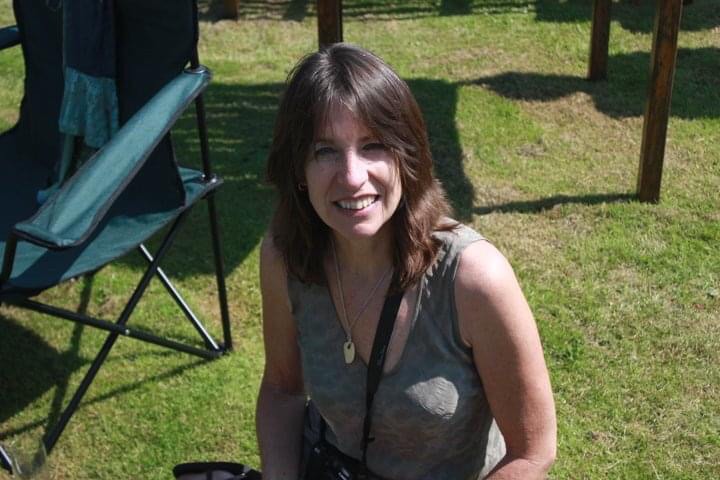Here are selections from Doris’s published works categorised by theme. The page starts with some of her favourite pieces for a broad audience including three for Artlink which she loved.
Or for Doris’s fantastic series of talks on The Philosophy of Psychoanalysis, listen to the podcast available at buzzsprout, spotify, apple podcasts, or iTunes. Season One (the first 18 episodes, plus 2 bonus episodes) was on the philosophy of psychoanalysis. Season Two is on Personality Psychology.
Please contact me John Sutton at john.sutton@mq.edu.au if you have any questions or comments. Or return here to the full list of Doris’s writings.

Art, emotion, politics, and the past – public writings
Doris J.F. McIlwain (2009). Living palely and the rationality of a certain fullness of feeling. Artlink 29 (3), 15-24. [Probably Doris’s favourite piece of writing – enjoy]
Doris J.F. McIlwain (2012). Contained fear: living in geological time. Artlink 32 (4), 28-31. [on Fukushima, and Ken & Julia Yonetani’s uranium art; leaving fear invisible/ re-imaging the past/ coping with trauma].
Doris J.F. McIlwain (2011). Transplanting life: the distributed media of embodied selves. Artlink 31 (4), 56-59.
Doris J.F. McIlwain (1998). Losing ourselves: the burden of consciousness in the writings of Jenny Diski. Corporealities: energies, affects, selves. Collected Papers vol.4 of the Literature and Psychoanalysis Conference
Skilled movement
Doris J.F. McIlwain & John Sutton (2014). Yoga from the mat up: how words alight on bodies. Educational Philosophy and Theory 46 (6), 655-673. Reprinted in David Simpson & David Beckett (Eds.), Expertise, Pedagogy and Practice (pp. 92-110). London: Routledge, 2016. [the mind-body problem comes to practical life]
research methods
Doris J.F. McIlwain & John Sutton (2015). Methods for measuring breadth and depth of knowledge. In Damian Farrow & Joe Baker (Eds.), The Routledge Handbook of Sport Expertise (pp. 221-231). London: Routledge. [interviews, coding, integrating qualitative & quantitative methods, rapport, sport]
CHARISMA
Doris J.F. McIlwain (2011). Charismatic leaders. In Mark Juergensmeyer & Helmut Anheier {Eds.}, The Encyclopedia of Global Studies. London: Sage.
Doris J.F. McIlwain (2006). The charisma of fallible leaders and the limits of self-help: book review of Steve Salerno, SHAM, Self-Help and Actualization Movement: How the Gurus of the Self-Help Movement Make us Helpless. Australian Review of Public Affairs.
Doris J.F. McIlwain (1994). The gods are libido. Book review of Richard Noll, The Jung Cult: origins of a charismatic movement. Metascience new series 7, 212-215.
personality and NEw religious movements
Doris J.F. McIlwain (1990/ 2009). Impatient for Paradise: charisma, personality, and charismatic new religious movements. VDM Verlag. [reprint of Doris’s PhD, which was awarded the H. Tasman Lovell Medal at the University of Sydney].
Doris J.F. McIlwain (1993/ 2009). Returning by an unused path: charismatic new religions, primary narcissism, and the denied wish. In Impatient for Paradise: charisma, personality, and charismatic new religious movements. VDM Verlag. [The preface ends: ‘I offer a final chapter which haunted the footnotes of the original work and which I presented to a specialist group at the University of Sydney in 1992. This chapter addresses why Freud got it so wrong in proclaiming that religion an illusion with a limited future. It explores the familial and cultural origins of charisma and shows why psychoanalysis got it so right about why many seek a world of demand and response rather than one of cause and effect.’ Doris submitted the paper to an international journal in 1993. One reviewer wrote that it gives ‘a more sophisticated account of religion than Freud’s’, but recommended rejection because ‘like Freud the author regards religion exclusively as psychopathological and thus in need of explanation (and cure) by psychoanalysis; she seems not to view it at all as a mode of life and enquiry which sometimes aims at truth and change of heart, and which may have something to teach and share with psychoanalysis’. The paper remained unpublished till 2009.
Doris J.F. McIlwain. Exiles at home: a psychological profile of affiliates to innovative new religious movements in Australia. In A.M. Bouvy, F.J.R. van der Vijver, P. Boski & P. Schmitz (Eds.) Journeys into Cross-cultural Psychology (pp 216–36). Amsterdam: Swetz & Zeitlinger.
Doris J.F. McIlwain. A personality approach to involvement in new religious movements. In Boele de Raad, Willem K.B. Hofstee, & Guus L. van Heck (Eds.), Personality Psychology in Europe (pp. 235–42). Tilburg: Tilburg University Press.

personality psychology
Doris J.F. McIlwain (2007). Rezoning pleasure: drives and affects in personality theory. Theory & Psychology 17 (4), 529-561.
THE DARK TRIAD OF PERsonality: psychopaths, machiavellians, narcissists
Doris J.F. McIlwain (2010). Living strangely in time: emotions, masks, and morals in psychopathically-inclined people. European Journal of Analytic Philosophy 6 {1}, 75-94.
Doris J.F. McIlwain (2008). Cascading constraints: the role of early developmental deficits in the formation of personality styles. In S. Boag (Ed.), Personality Down Under {pp. 61-80). Nova Science Publishers.
Doris J.F. McIlwain (2003). Bypassing empathy: a Machiavellian theory of mind and sneaky power. In Betty Repacholi & Virginia Slaughter, Individual Differences in Theory of Mind: implications for typical and atypical development (pp. 39-66).
coping and RESILIENCE
Doris J.F. McIlwain (2014). Resilience as scaffolding embodied affectivity Invited talk at the 3rd Annual Conference, Westmead Psychotherapy Program for Complex Traumatic Disorders: Roads to Resilience: from trauma to well-being (Doris’s last major public talk, September 2014).
RUMination, reflection, memory, emotion
Doris J.F. McIlwain, Alan Taylor, & Andrew Geeves (2010). Fullness of feeling: reflection, rumination, depression, and the specificity of autobiographical memories. In W. Christensen, E. Schier, & J. Sutton (Eds.), ASCS09: proceedings of the 9th conference of the Australasian Society forCognitive Science, pp. 238-244.
Doris J.F. McIlwain (2006). Already filtered: affective immersion and personality differences in accessing present and past. Philosophical Psychology 19 (3), 381-399.
REMEMBERING TOGETHER
Celia B. Harris, Paul G. Keil, John Sutton, Amanda J. Barnier, & Doris J.F. McIlwain (2011). ‘We remember, we forget’: collaborative remembering in older couples. Discourse Processes 48 (4), 267-303.
PsYchoanalytic theory and technique
Anthony Arcuri & Doris J.F. McIlwain (2014). Skilled handling of sexual attraction in therapy: a grounded theory of what makes the difference. In Maria Luca (Ed.), Sexual Attraction in Therapy: clinical perspectives on moving beyond the taboo – a guide for training and practice (pp. 153-172). Oxford: Wiley Blackwell.
Doris J.F. McIlwain (2014). Knowing but not showing: achieving reflective encounter with desire – a relational psychoanalytic perspective. In Maria Luca (Ed.), Sexual Attraction in Therapy: clinical perspectives on moving beyond the taboo – a guide for training and practice (pp. 53-66). Oxford: Wiley Blackwell.
Doris J.F. McIlwain (2012). Book review of Paul Valent, In Two Minds: tales of a psychotherapist. Australasian Journal of Psychotherapy 30 (1), 61-65.
Doris J.F. McIlwain (2007). The pirates’ code of psychoanalysis: moral rules or merely guidelines? Book review of Arnold Goldberg, Moral Stealth: how ‘correct behavior’ insinuates itself into psychotherapeutic practice, Australian Review of Public Affairs.
Doris J.F. McIlwain (2001). The dynamic unconscious revisited: the role of motivation, affect, embodiment, and intersubjectivity in catching ourselves unawares. In Niamh Stephenson & John R. Morss (Eds.), Theoretical Issues in Psychology (pp. 379-392). Dordrecht: Kluwer.

